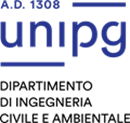Study-unit RANDOM AND SMART CONSTRUCTION MATERIALS
| Course name | Sustainable materials and processes engineering |
|---|---|
| Study-unit Code | A002450 |
| Curriculum | Materiali per il green building |
| Lecturer | Massimiliano Gioffre' |
| CFU | 9 |
| Course Regulation | Coorte 2023 |
| Supplied | 2024/25 |
| Type of study-unit | Obbligatorio (Required) |
| Type of learning activities | Attività formativa integrata |
| Partition |
MODELING AND SIMULATION OF HETEROGENEOUS MATERIALS
| Code | A002451 |
|---|---|
| CFU | 6 |
| Lecturer | Massimiliano Gioffre' |
| Lecturers |
|
| Hours |
|
| Learning activities | Caratterizzante |
| Area | Ingegneria dei materiali |
| Sector | ICAR/08 |
| Type of study-unit | Obbligatorio (Required) |
SMART MATERIALS FOR CONSTRUCTION ENGINEERING
| Code | A002452 |
|---|---|
| CFU | 3 |
| Lecturer | Antonella D'alessandro |
| Lecturers |
|
| Hours |
|
| Learning activities | Affine/integrativa |
| Area | Attività formative affini o integrative |
| Sector | ICAR/09 |
| Type of study-unit | Obbligatorio (Required) |
| Language of instruction | ENGLISH |
| Contents | After providing the basic elements of structural materials used in construction technologies, such as steel structures, reinforced and prestressed concrete structures, the module faces the new frontiers of construction materials and techniques. In particular, the module deals with smart concretes sensitive to the state of deformation, smart bricks, concretes with phase change materials, recycled concretes, self-healing concretes, composite materials for the reinforcement of concrete and steel structures. The module will have a natural synergy with the material testing laboratories of Foligno and Terni. |
| Reference texts | Specific references provided by the teacher. Italian and International Building Codes. Recommended books: - A. D'Alessandro, A.L. Materazzi, F. Ubertini. Nanotechnology in Cement-Based Construction, ISBN 9789814800761, 2020, Jenny Stanford Publishing. - B. Han, X. Yu, J. Ou. Self-Sensing Concrete in Smart Structures, ISBN-10 : 0128005173, ISBN-13 : 978-0128005170 2014, Butterworth-Heinemann. - F. Pacheco-Torgal, R.E. Melchers, X. Shi, N. De Belie, N., K. Van Tittelboom, K., A. Sáez. Eco-efficient Repair and Rehabilitation of Concrete Infrastructures, ISBN 978-0-08-102181-1, 2018, Woodhead Publishing - K.J. Loh and S. Nagarajaiah, Innovative Developments of Advanced Multifunctional Nanocomposites in Civil and Structural Engineering, ISBN 978-1-78242-326-3, 2016, Woodhead Publishing. - P. Samui, D. Kim, N. Iyer, S. Chaudhary. New Materials in Civil Engineering, ISBN: 9780128189610, 2020, Butterworth-Heinemann. |
| Educational objectives | The module aims at providing the knowledge and skills essential to understand and describe, both theoretically and experimentally, the mechanical behavior of building materials, with a particular focus on frontier applications related to smart materials and constructions. |
| Prerequisites | Knowledge of basic chemistry and physics. Basics of Structural Mechanics with a specific focus on strength of materials. |
| Teaching methods | The module is organized in face-to-face lectures, organized in two teaching units, concerning the whole program of the course. Moreover, in some cases active learning approaches such as flipped-classroom, learning-by-doing and think-aloud will be used. During the course also laboratory experiences will be carried out. |
| Learning verification modality | The exam will consist of an oral test where two/three questions will be asked on the contents of the module. During the test, the topics addressed in the laboratory experiences will also be discussed, whereby the students will produce technical reports on lab activities. |
| Extended program | The module will be organized in two units. First unit. The first unit will provide the basic elements of structural materials used in steel constructions, reinforced and prestressed concrete, as the first step for analyzing new smart and multifunctional materials. A specific focus will be devoted to preparation and industrial fabrication aspects, mechanical characterization, durability issues and qualification, acceptance and control tests, both in lab and on site. Second unit. The unit will concern the presentation of the new frontiers of intelligent materials. In particular, multifunctional concretes (including smart concretes sensitive to their state of deformation, recycled concretes and self-healing concretes), smart bricks, composite materials for the reinforcement of concrete and steel constructions, will be treated. Specific aspects related to production and fabrication will be analyzed, alongside with characterization methods with a focus on multifunctional properties, and typical structural applications will be presented. During the course synergies will be drawn with the material testing laboratories of Terni and Foligno. Within the module, seminaries to explore particularly advanced topics will be held by internationally acknowledged experts. |
| Obiettivi Agenda 2030 per lo sviluppo sostenibile | 9,11,12 |


